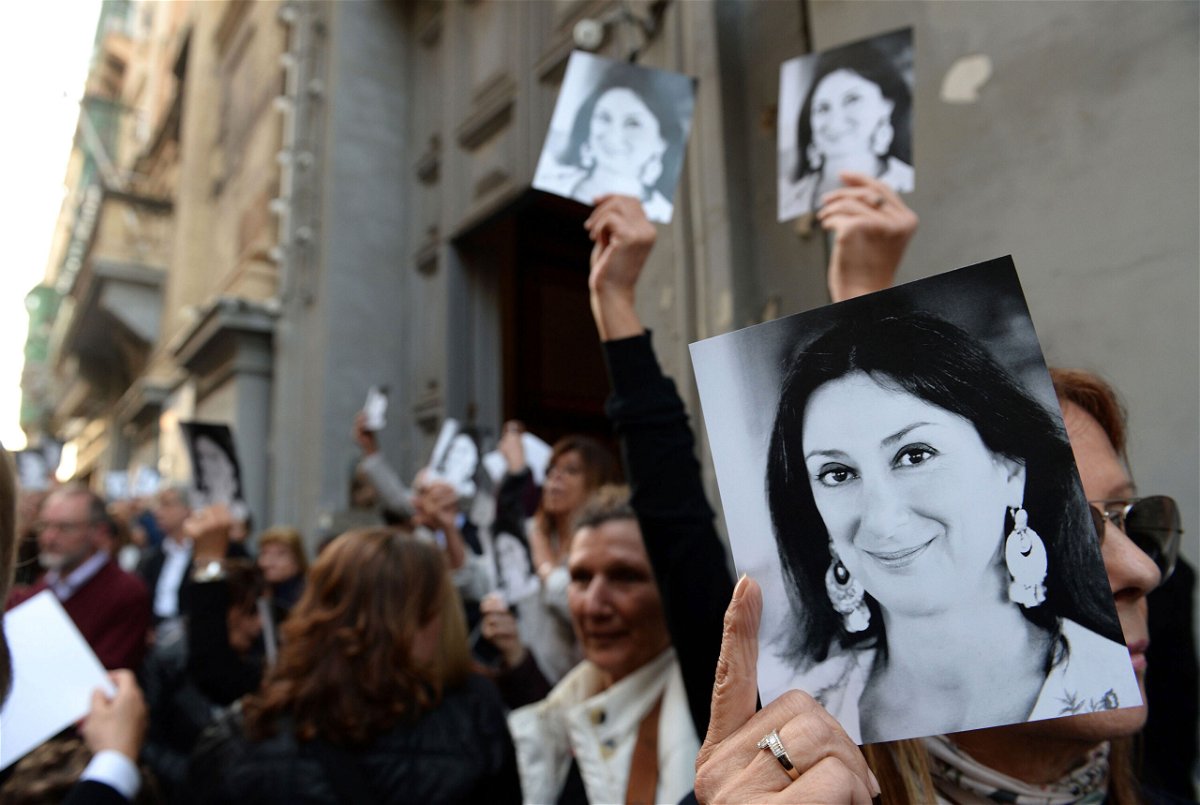Malta’s government must bear responsibility for journalist’s assassination, inquiry finds

Malta's government must bear responsibility for creating an "atmosphere of impunity" that contributed to the murder of journalist Daphne Caruana Galizia
By Rob Picheta, Sharon Braithwaite and Sarah Dean, CNN
Malta’s government must bear responsibility for creating an “atmosphere of impunity” that contributed to the murder of journalist Daphne Caruana Galizia, an independent inquiry has found.
Caruana Galizia, a leading Maltese anti-corruption journalist, was killed in October 2017 when a bomb in her rented car was detonated by a remote-controlled device on a country lane near her home.
Her family had long argued she was assassinated because of her work uncovering alleged corruption in Malta’s government, and her death sparked a political crisis in the southern European country. Vincent Muscat, one of the three suspects accused of her murder, pleaded guilty in February.
Prime Minister Robert Abela published the findings of the inquiry, which began in December 2019, on Thursday.
At a news conference, he said the board “unequivocally confirms that the state was not directly involved in the assassination. However, it also states the state must shoulder the responsibility for serious shortcomings especially related to governance and the protection of journalists.”
The public inquiry, conducted by one active and two retired judges, found “the State must bear responsibility for the assassination because it created an atmosphere of impunity generated from the highest levels in the heart of the administration within the Office of the Prime Minister that like an octopus spread to other entities, such as regulatory institutions and the police, leading to the collapse of the rule of law,” according to a news release from the Daphne Caruana Galizia Foundation and the lawyers representing Caruana Galizia’s family.
It added the state did not “recognise as they should have the real and immediate risks, including from the criminal intent of third parties, to Daphne Caruana Galizia’s life,” and failed to take reasonable steps to avoid the threat.
Abela said he felt “duty bound to apologise to the family of the late Mrs Daphne Caruana Galizia and all those who feel aggrieved by this dark episode in our nation’s history.”
Caruana Galizia’s murder was met with anger across the continent and prompted a long-running scandal that claimed the career of Abela’s predecessor as prime minister, Joseph Muscat, who resigned in January 2020 but has always denied any wrongdoing or involvement in the journalist’s death. The former leader is no relation to Vincent Muscat.
Abela said in a tweet Thursday that the report “merits mature analysis beyond partisan arguments. Lessons must be drawn and the reforms must continue with greater resolve.”
Caruana Galizia family’s said in a statement that the inquiry’s findings “confirm the conviction our family held from the moment Daphne was assassinated: that her assassination was a direct result of the collapse of the rule of law and the impunity that the State provided to the corrupt network she was reporting on.”
The family said it hopes the findings will lead to the “restoration of the rule of law in Malta, effective protection for journalists, and an end to the impunity that the corrupt officials Daphne investigated continue to enjoy. Daphne and her work will live on in ensuring that the recommendations of this Inquiry effect lasting change.”
Joseph Muscat said in a statement Thursday: “It is to be noted that the Inquiry found that the State had no prior knowledge of, or was involved in the assassination. The report also unequivocally states that I was in no way implicated in the murder.”
However, despite his “very serious reservations on the shortcomings of the Inquiry,” Muscat added: “I accept the said conclusions as I have always done in the past out of respect for the Institutions.”
“As I said when I announced I would be stepping down from Prime Minister, I was doing so to shoulder responsibilities which were mine and also those which were not, including those mentioned in this Inquiry. I paid the ultimate political price for this,” he added.
The Daphne Caruana Galizia Foundation said in a statement: “This report is a landmark in the campaign to ensure that the Maltese State is held accountable for its positive obligation to protect journalists. We call on the Government to accept the recommendations of the Inquiry and to publish its plan of action without delay.
“This is a historic opportunity to ensure real change for the safety of journalists and to a process of national healing following the traumatic assassination of Daphne Caruana Galizia on 16 October 2017,” they added.
This article has been updated to reflect the correct date of Caruana Galizia’s death. It was October 2017.
The-CNN-Wire
™ & © 2021 Cable News Network, Inc., a WarnerMedia Company. All rights reserved.